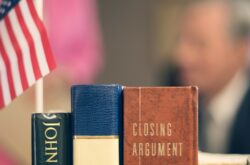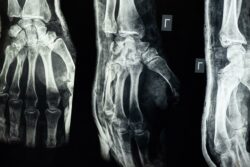Pandemic Legal Guide: Your Coronavirus Questions Answered
In the wake of COVID-19, understanding the legal implications can be complex. This guide explores various affected legal areas, from personal injury and medical negligence to workers' compensation and premises liability. Providing a comprehensive analysis, it aims to clarify the impact of the pandemic on ongoing cases, potential lawsuits, and legal rights during these challenging times. The guide is a valuable resource for navigating the evolving legal landscape during the COVID-19 pandemic.

Key Takeaways
- The pandemic has had a significant impact on personal injury and medical negligence cases, including potential legal actions related to virus contraction and consequences of missed medical appointments.
- There have been procedural delays in filing personal injury claims during the pandemic, and new categories of claims have arisen from negligent exposure to COVID-19, such as misdiagnosis lawsuits and cases against healthcare facilities for coronavirus-related deaths.
- Remote case management has presented both challenges and opportunities for legal professionals, requiring swift adaptation to digital platforms for virtual interactions and ensuring uninterrupted legal service provision.
- Navigating the statute of limitations has become more complex during the pandemic, with adjustments made in legal timelines, delays in court proceedings, and the extension of traditional deadlines for filing lawsuits in some jurisdictions. It is crucial to secure legal counsel to effectively navigate these changing landscapes.
Understanding Personal Injury in the Context of Coronavirus
Navigating the complexities of personal injury claims amidst the ongoing pandemic involves a comprehensive understanding of how the coronavirus impacts these cases, including potential legal actions, consequences of missed medical appointments, and the possibility of injury claims related to virus contraction. The consequences of delayed medical treatment can be detrimental to a personal injury claim, as it may provide defendants with an argument that the claimant failed to mitigate damages. Filing a personal injury claim during the pandemic could face procedural delays due to court closures, but technological advancements have allowed for remote filings and virtual court proceedings. Additionally, the pandemic may introduce new categories of claims, such as those arising from negligent exposure to COVID-19.
Exploring the Impact of Coronavirus on Medical Negligence Cases
In the face of the COVID-19 crisis, two key issues have emerged in medical negligence cases: the potential for misdiagnosis lawsuits and the surge in cases against healthcare facilities for coronavirus-related deaths, both of which underscore the significant impact of the pandemic on medical malpractice litigation. The former centers on allegations of incorrect or delayed diagnosis, compromising patient outcomes. Meanwhile, the latter focuses on perceived inadequate protection or care leading to fatal outcomes. This surge in medical malpractice lawsuits is profoundly reshaping the legal landscape, making liability for coronavirus related deaths a contentious issue. Notably, the crisis has spotlighted the need for clarity in medical standards and patient rights, thereby prompting an urgent reassessment of existing legal frameworks governing medical negligence.
Remote Case Management During the Pandemic
During the pandemic, the shift to remote case management has posed significant challenges for legal professionals, yet it has also opened opportunities for increased flexibility and efficiency. The traditional face-to-face model has been replaced with virtual interactions, necessitating a swift adaptation to digital platforms. Despite initial hurdles, remote case management has enabled uninterrupted legal service provision, ensuring justice is not compromised.
However, this shift has amplified the digital divide, potentially marginalizing those lacking access to technology. Remote court proceedings have also faced scrutiny for possibly infringing on the right to a fair trial. Yet, the pandemic-induced model of remote justice, while not without flaws, has demonstrated potential for a more accessible, cost-effective legal system. Future discourse should focus on refining this model, balancing efficiency with fairness.
Navigating the Statute of Limitations Amidst Coronavirus
Amid the ongoing pandemic, understanding the impact of coronavirus on the statute of limitations is paramount, and this requires a thorough comprehension of adjustments made in legal timelines. Exploring legal implications for missed deadlines highlights the complexity of the situation. Many courts have suspended their activities, causing delays and impacting court proceedings significantly. This has directly affected the enforcement of the statute of limitations, often extending the traditional deadlines. However, these extensions are not universal and vary by jurisdiction. Understanding the impact of the pandemic on court proceedings is crucial, as it influences the timeline for filing lawsuits. Ultimately, the pandemic's effect on the statute of limitations underscores the importance of securing legal counsel to navigate these changing landscapes effectively.
Legal Rights and Options During the Pandemic: a Guide
Understanding your legal rights and options during the COVID-19 pandemic is crucial to effectively navigate this unprecedented situation. The pandemic has reshaped the legal landscape, introducing novel scenarios that demand a thorough exploration of legal implications. Personal injury, medical negligence, worker's compensation and premises liability are areas significantly impacted. Understanding legal rights in these contexts help individuals make informed decisions, especially those directly affected. For instance, on contracting the virus at work, one should be aware of their eligibility for worker's compensation benefits. Similarly, if infected due to negligence, understanding the nuances of medical negligence law becomes essential. Amidst these complexities, it's imperative to stay informed and seek professional legal advice to ensure the protection of one's rights and interests.
Worker’s Compensation Eligibility for Coronavirus at Work
The employee's potential eligibility for workers' compensation, should they contract the coronavirus at work, is a critical issue, and it necessitates a comprehensive understanding of the evolving legal landscape. This complex situation places a spotlight on employer's liability and the extent of compensation benefits. It is key to understand the nuances that govern these decisions. Primarily, the burden of proof lies with the employee to establish a causal link between the workplace and the virus contraction. While healthcare and frontline workers may have a stronger case, it's a challenge for others. The employer's liability hinges on their adherence to safety protocols and regulations. The compensation benefits awarded vary widely based on the severity of symptoms, duration of illness, and long-term impacts. This underlines the need for a detailed, analytical approach in such claims.
Employer’s Duties in Preventing Coronavirus Spread at Workplace
In light of the ongoing pandemic, it is crucial for employers to implement comprehensive safety measures to prevent the spread of coronavirus within the workplace. The employer's liability extends to providing a safe working environment. This includes enforcing social distancing, ensuring regular sanitization of the workspace, and providing personal protective equipment. Employee protection measures must be robust, including clear communication about safety protocols and guidelines. Employers must also be prepared to handle cases where employees contract the virus, including supporting them in their recovery and ensuring non-discrimination. Analyzing these steps reveals the multi-faceted nature of employer's duties during the pandemic, reiterating the significance of their role in controlling the spread of the virus.
The Effect of Missed Medical Appointments on Worker’s Compensation Cases
Navigating the complex landscape of worker's compensation cases becomes even more intricate when missed medical appointments enter the equation, potentially leading to denied claims or reduced benefits. The consequences of missed medical appointments are multifaceted, escalating from a simple rescheduling to a complete claim denial. These absences signal non-compliance, which insurance adjusters can interpret as a lack of necessity for treatment, thereby weakening the claim's credibility. The impact on worker's compensation claims is significant, with possible reduction in benefits or claim denial. Thus, maintaining a consistent medical appointment schedule is crucial. A detailed analysis of each case is necessary, as exceptions may occur in complex scenarios, such as during a pandemic. Therefore, understanding these consequences is integral to effectively navigating the worker's compensation claim process.
The Legal Implications of Coronavirus Testing in the Workplace
Addressing both the rights of employers to request coronavirus testing and the privacy concerns of employees, there are numerous legal considerations to assess when implementing COVID-19 testing in the workplace. Legal rights must be balanced against public health imperatives. Employers have a duty of care to provide a safe working environment, including the implementation of testing protocols. However, employees' privacy rights, protected by legislation such as the Americans with Disabilities Act and Health Insurance Portability and Accountability Act, could be infringed upon. Legal experts suggest obtaining explicit consent from employees for testing and ensuring that any health data collected is strictly necessary, stored securely, and used only for its intended purpose. Navigating these complexities requires a diligent approach to policymaking and legal consultation.
Suing Cruise Lines or Grocery Stores: Premises Liability in the Age of Coronavirus
As we delve into the complexities of premises liability amid the COVID-19 pandemic, we explore the potential for lawsuits against cruise lines and grocery stores, balancing the rights of consumers to a safe environment and the challenges businesses face in mitigating virus spread. The issue of suing grocery stores for negligence arises when they fail to enforce safety measures such as physical distancing or regular sanitization, potentially leading to virus transmission. Similarly, the liability of cruise lines in coronavirus cases is under scrutiny, particularly when they don't adequately screen passengers or maintain sanitation standards. However, proving negligence in these scenarios is intricate, requiring a clear demonstration that the business' failure directly resulted in infection. These legal battles underscore the tension between consumer safety and business feasibility during unprecedented times.
Legal Recourse Against Ride-Sharing Services During the Pandemic
In the context of the pandemic, a ride-sharing service's responsibility to ensure passenger safety has become a critical issue, and passengers may consider legal action if they contract the virus during their journey. Legal actions against ride-sharing services are complex due to the intricate nature of ride-sharing liability. These services often classify their drivers as independent contractors, muddying the waters of responsibility. However, if a passenger can prove that the service failed to enforce safety measures, such as mask mandates or vehicle sanitation, they may have a case. Additionally, the service's duty of care extends to ensuring drivers are not knowingly working while infected. These discussions highlight the pandemic's influence on legal landscapes and the pressing need for clear guidelines within the ride-sharing industry.
The Responsibility of Businesses to Protect Customers From Coronavirus Exposure
The majority of businesses are now grappling with the crucial task of implementing stringent measures to safeguard their customers from potential exposure to the Coronavirus. This has brought business liability and customer safety to the forefront of discussions. It is incumbent upon businesses to ensure that the environment they provide is not conducive to the spread of the virus. This includes regular sanitization of premises, enforcing social distancing, and providing personal protective equipment where necessary. Failure to implement these safeguards could result in liability if a customer contracts the virus. The extent of this liability, however, is contingent on proving that the business was negligent in its duty to ensure customer safety. This is a complex issue, requiring careful analysis and a thorough understanding of the legal landscape.
Frequently Asked Questions
What Are My Rights if I Am Being Forced to Work in Unsafe Conditions During the Coronavirus Pandemic?”
During the coronavirus pandemic, employees have the right to refuse to work in conditions they believe are unsafe. Under Occupational Safety and Health Administration (OSHA) guidelines, employers are obligated to maintain a workplace free of hazards that could cause death or serious harm. If you believe you're being compelled to work in unsafe conditions, you may have legal recourse. Consult with an attorney to understand your rights and options.
Can I Be Fired if I Refuse to Go to Work Due to Fears of Contracting Coronavirus?”
Addressing job security concerns, your employer cannot typically fire you for refusing to work due to fears of contracting coronavirus. However, it's important to note that this may vary based on employment contracts and local labor laws. Employee vulnerability to such risks should ideally be mitigated by employers through implementing safety measures. If you feel your rights have been violated, consult with a labor attorney for guidance.
What Are the Legalities Involved in Remote Court Hearings During the Coronavirus Pandemic?”
Remote court hearings during the coronavirus pandemic have introduced a new set of legalities. Digital Litigation Challenges include ensuring privacy, confidentiality, and maintaining a fair hearing. Overcoming these requires a Tech Savvy Judiciary, well-versed in using digital platforms securely. Furthermore, ensuring all parties have equal access to technology is paramount. Therefore, while remote hearings offer a solution to pandemic restrictions, they demand careful navigation of these new legal intricacies.
Can I File a Class Action Lawsuit Against a Company for Unsafe Work Conditions Leading to Coronavirus Infection?”
Yes, you can potentially file a class action lawsuit for unsafe work conditions leading to coronavirus infection. Lawsuit eligibility relies on proving the employer failed to implement necessary safety measures, directly causing the infection. Compensation possibilities may include medical expenses, wage loss, and pain and suffering. However, complexities arise due to proving causation and the applicability of workers' compensation laws. It's advised to consult with a legal professional for guidance.
What Are the Legal Consequences for Businesses That Do Not Adhere to Coronavirus Safety Regulations?”
Businesses failing to comply with coronavirus safety regulations may face severe legal consequences. Regulatory penalties can range from fines to temporary or permanent closure. Furthermore, they expose themselves to potential business liability. Non-compliance may lead to lawsuits by customers, employees, or others who contract the virus due to their negligence, resulting in additional financial and reputational damage. It is crucial for businesses to adhere to these regulations to ensure safety and avoid legal issues.
Conclusion
In conclusion, the COVID-19 pandemic has significantly reshaped the legal landscape, necessitating a comprehensive understanding of various aspects of law from personal injury to premises liability. The pandemic has underscored the importance of legal rights and options, employer responsibilities, and business accountability. As the situation continues to unfold, clarity and coherence in navigating these legal complexities remain of paramount importance for justice and fairness in these unprecedented times.

This post has been generated by AI and was not reviewed by editors. This is Not legal advice. Please consult with an attorney.




